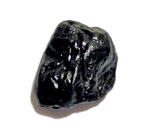Cardiac Events the least in Marathoners
Posted by: admin on: February 13, 2012
More than a million would participate in a marathon but just one cardiac casualty is enough to hit the headlines the next day. But that should not deter participants. Read on to know more.
Team@CMHF
Despite well-publicized stories of people dropping dead during or after running a marathon, the race isn’t all that risky, researchers found.
Among nearly 11 million marathoners and half-marathoners, only 59 went into cardiac arrest during a race, for an incidence rate of just 0.54 per 100,000 participants, Aaron Baggish, MD, of Massachusetts General Hospital in Boston, and colleagues reported
Event rates among marathon and half-marathon runners are relatively low, as compared with other athletic populations, including collegiate athletes, triathlon participants, and previously healthy middle-aged joggers,” they wrote.
Men, however, were more likely to have an event than women, they noted.
In 2010, about two million people around the U.S. ran long-distance races, a figure that more than doubled from 10 years prior. But that growth has been accompanied by a rise in race-related heart problems and in news headlines about the risk of sudden death.
So the researchers created the Race Associated Cardiac Arrest Event Registry (RACER) to assess the incidence and outcomes of cardiac arrest associated with long-distance races in the U.S. between Jan. 1, 2000 and May 31, 2010.
The database included a total of 10.9 million runners; only 59 had suffered a cardiac arrest, for an overall incidence rate of 0.54 per 100,000 participants, the researchers reported. Their median age was 42.
A total of 71% of those cases were fatal.
As expected, rates of cardiac arrest were significantly higher during marathons than half-marathons as was the incidence of sudden death Men were more likely to go into cardiac arrest than women, , and they also were more likely to die, the researchers reported. They said the finding “reaffirms a male predisposition to exertional cardiac arrest” which is likely due to their higher prevalence of hypertrophic cardiomyopathy — the condition most responsible for cardiac arrest during races — and early-onset atherosclerosis.
They called this finding “troubling” because it suggests that more high-risk men are being drawn to long-distance running for its health benefits, though this could essentially backfire on them.
All runners were more likely to survive cardiac arrest if a bystander started cardiopulmonary resuscitation (CPR) on them, and if they had an underlying heart diagnosis other than hypertrophic cardiomyopathy (There also was an association between age and cardiac arrest outcome, with better survival among older patients – those age 40 and up. That’s because younger arrest patients are more likely to have had hypertrophic cardiomyopathy, and resuscitation is less successful in this condition than in others, the researchers said.
They also suggested that the practice of taking aspirin before a race may have limited efficacy, because there was little coronary plaque rupture and thrombosis in marathoners who had cardiac arrest. Pre-race screening, on the other hand, may help identify at-risk patients, but further study is needed, they said.
They added that clinicians evaluating potential marathoners should be aware of the risks of hypertrophic cardiomyopathy in these patients.
The study was limited by a lack of complete clinical data on all cases of cardiac arrest
Ref: http://www.medpagetoday.com/Cardiology/AcuteCoronarySyndrome/30621?utm_medium=email&utm_campaign=DailyHeadlines&utm_source=WC&email=drsumanrao21@gmail.com&eun=g371326d0r&userid=371326&mu_id=
Search
- drchasrani: Difficult to get such a data, authenticated at that. Try Times of India online library
- rakesh pore: hi, where can i get genuine information about "10 most common drugs sold in india?" i want it for a local project
- nilesh dutta: sir, Plz give detail about MBA Sports Management Thanks and Regards


Leave a Reply